By Leonie Guskowski

Every project requires teamwork. Can you identify which organizations or local leaders have your back? It’s important to get to know your counterparts so that you can build up mutual trust. How can you work together to successfully prepare the groundwork for a unified vision?
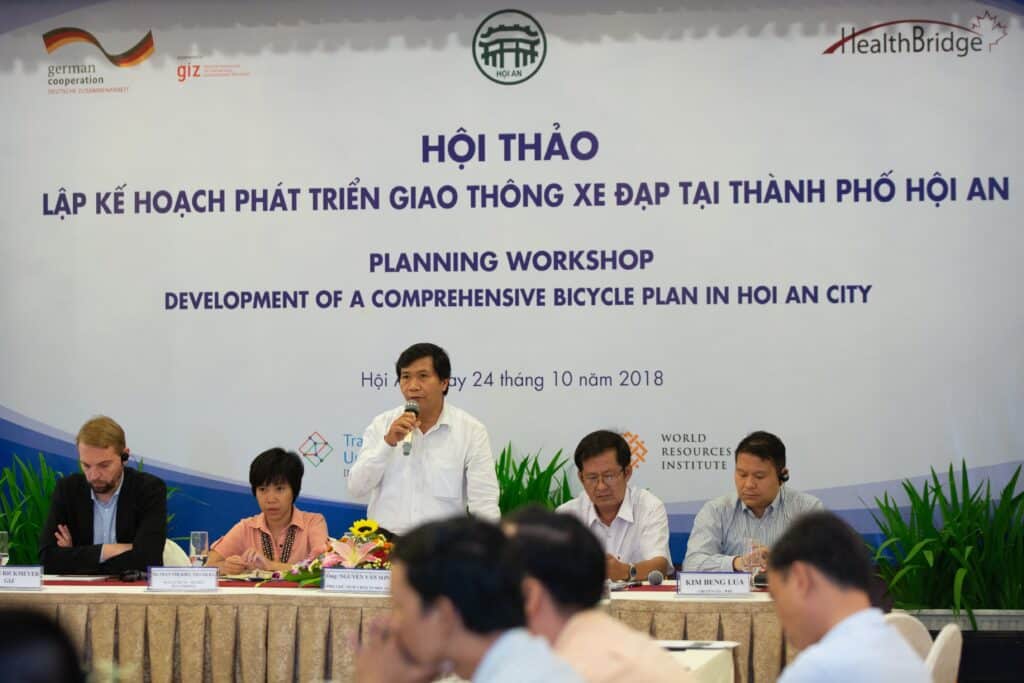
Spotlight: Hoi An, Vietnam
The TUMI Challenge in Hoi An introduced a bicycle sharing program to the ancient city. Along with TUMI, the City of Hoi An partnered with national and international organizations, like HealthBridge of Canada, WRI Ross Center, and GIZ Vietnam. Maintaining good communication with these partners and defining a clear stakeholder decision process was crucial to the success of the project, which kicked off in November 2018.
Relying on a close-knit network allowed for the construction of 2.5 km of bike lanes, the improvement of five intersections for cyclists, and the provision of 100 e-bikes and 225 mechanical bikes. During the coronavirus lockdowns in Hoi An, this infrastructure allowed for safe and reliable transport.

Procedures for implementing new mobility projects differ with each organization, so it will take some time to make sure that your city leaders and your partners are on the same page. Sit down together to go over the processes and come up with a game plan in order to avoid misunderstandings. But once everyone is in agreement, don’t be afraid to hand over some of the responsibilties to your partners! Be confident in their abilities as you continue to steward the process.

Spotlight: Zhytomyr, Ukraine
In Zhytomyr, Ukraine, we worked with local leaders on a project to get kids to school sustainably. This required a modal shift at Zhytomyr’s public schools from motorized towards more sustainable modes of transport by raising awareness among the students and their parents, as well as upgrading walking and cycling infrastructure around the schools.
When the TUMI Challenge in Zhytomyr kicked off, TUMI and our counterparts from the City of Zhytomyr were in close contact. During regular meetings, together they discussed guidelines and procedures. After they reached a mutual understanding, TUMI was able to pass the baton to Zhytomyr and facilitate and accelerate the project.

Working with existing entities or taking familiar approaches might seem like a good idea at first, but remember that diversity of thought often produces the most innovative ideas. Think about ways you can implement fresh ideas, work with different partners, and be open to new opportunities.
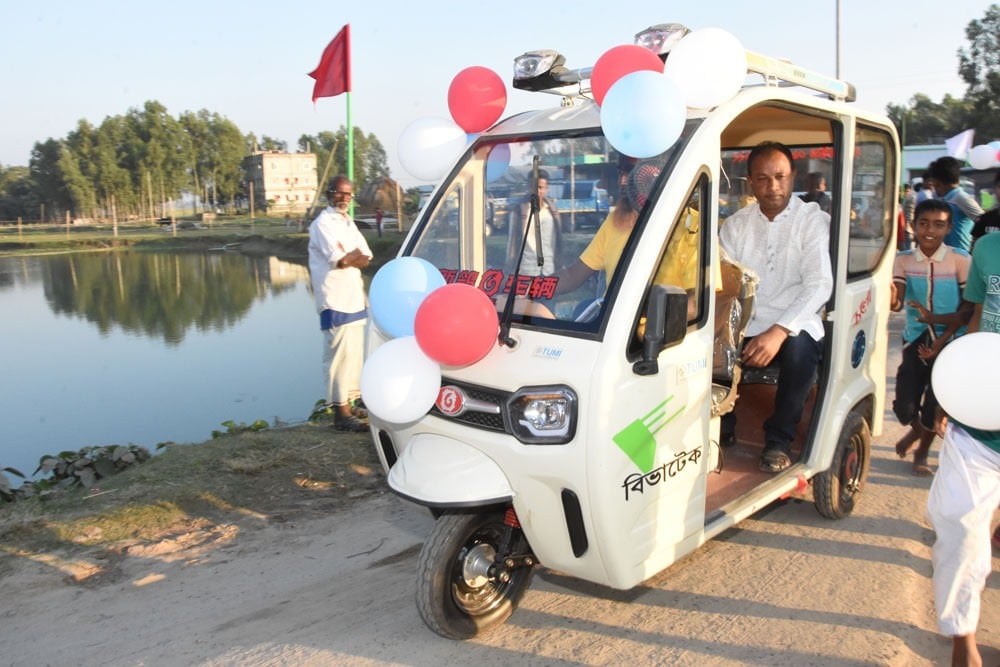
Spotlight: Singra, Bangladesh
Usually, we implement TUMI Challenges with cities and towns that already exist in our network. Singra, a small, remote town in Bangladesh, was not known to us when we received the project proposal from the Singra Municipality. However, we found the proposal so convincing that we were eager to expand our network and explore this new cooperation.
The project turned out to be more than successful. Together, we established Singra’s first public transport route, along with the provision of emergency health services. By applying the use of electric 3- and 4-wheelers (e-Rickshaws), we’ve been able to create a use case on the viability of electric mobility in the town. In fact, due to the Singra Municipality’s outstanding efforts in e-mobility, in 2019, the International Centre for Climate Change and Development awarded the town with the Urban Resilience Award.

Unexpected things usually happen at some point of the process. Expect delays in your timeframe, and plan for them.
The TUMI approach to changing the face of a city is participatory and inclusive. We consider gender aspects as well as environmental implications, so getting it right can take some time.
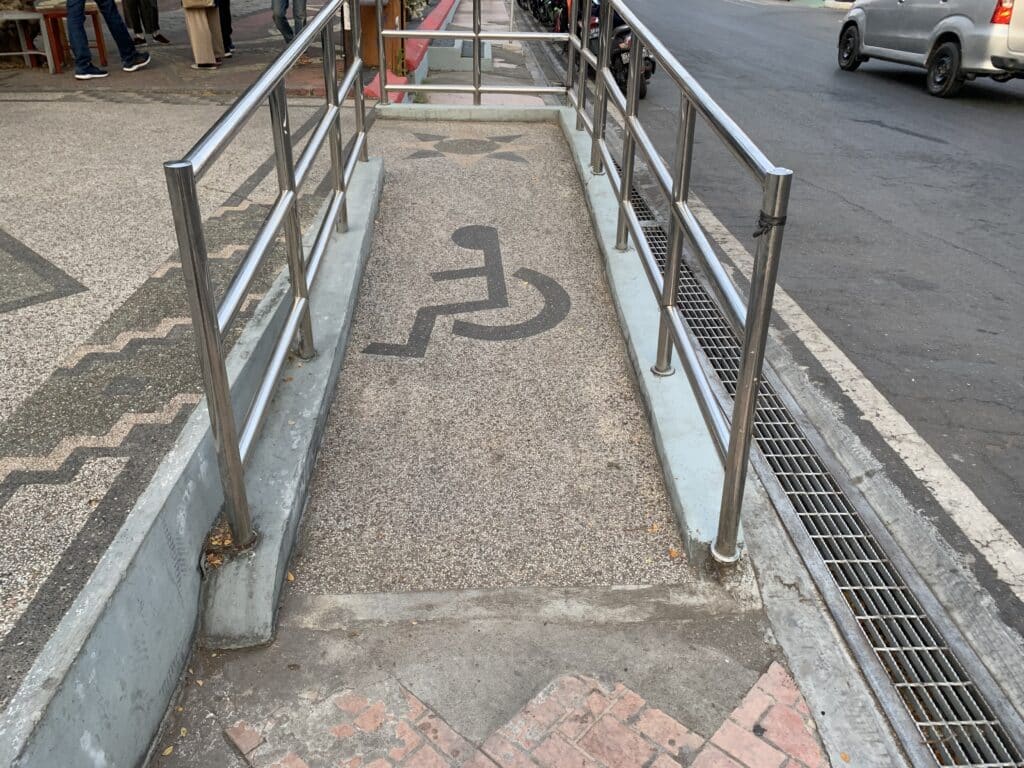
Spotlight: Banjarmasin, Indonesia
In Banjarmasin, Indonesia, we wanted to give students with disabilities and their parents easier access to schools, but in the planning process of the construction, we noticed a few challenges. For example, a waste depository by the city turned out to be in the way of planned infrastructure, requiring further adaptions to the designs and discussions with the respective city departments. Solving these and other participatory issues led to delays, but also ensured a successful and viable project.
Learn more about inclusive school zones

Sustainability projects that don’t plan for long-term success are not really sustainable – they just put a bandage over an issue. When working the field of sustainable mobility, having a stable plan is important to bridge the inevitable gaps of political or economic changes or shifting team members so that you can achieve long-term goals.

Spotlight: Singra, Bangladesh
Our plan with Singra was originally to introduce e-Rickshaws that would be used for both public transport and emergency health services. The business model relied on income generated from the e-Rickshaws, which would allow for self-sustainability and future expansion.
But in 2020, the pandemic hit and halted those plans. Luckily, the Singra Municipality had set up resilient mechanisms and were able to repurpose the e-Rickshaws for emergency food deliveries to all areas of the city during lockdown and to supply COVID-19-testing kits to urban and suburban areas. This not only ensured food security and health of Singra’s citizens, but also the durability of the vehicles and batteries and the safety of income for drivers.

Key to a project’s success is choosing the right partners. You need to ensure that whatever agencies or entities involved in your project play a specific role, and that everyone is working together as a team. That means having good communication and a thoughtful division of labor.
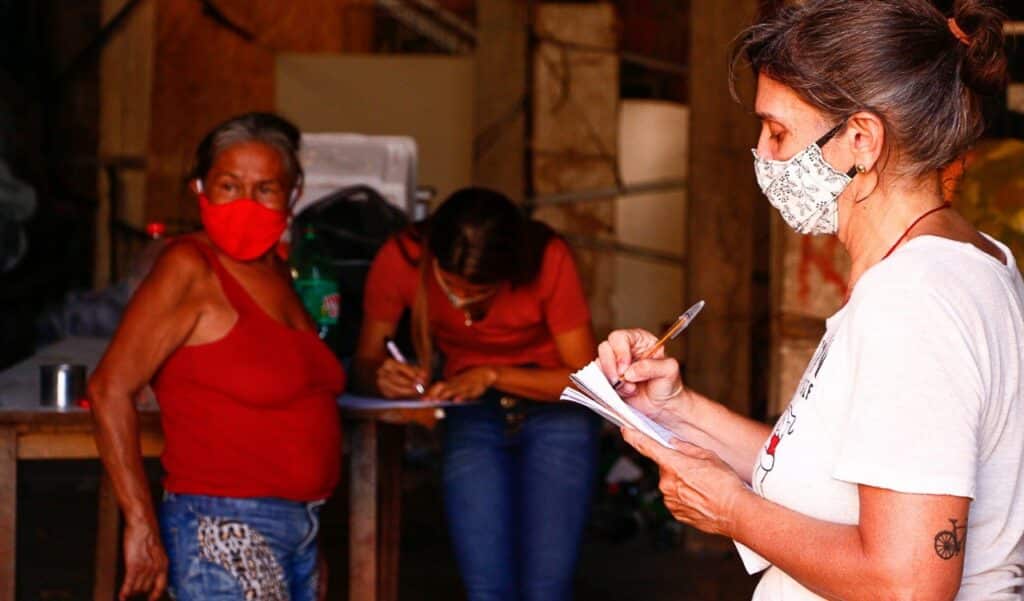
Spotlight: Fortaleza, Brazil
During the TUMI Challenge in Fortaleza, Brazil, our workflow immensely benefitted from being able to rely on an outstanding TUMI partner, CAF Development Bank of Latin America.
Together, we helped introduce locally produced mechanical and e-tricycles for catadores, or recyclable waste pickers, in order to make waste collection safer and more efficient.
Naturally, there were considerations outside of just supplying the bikes that required attention. Thanks to the support of CAF, the TUMI secretariat was able to hand over a lot of responsibilities and could focus instead on pushing forward other projects that were facing political or administrative setbacks.

Your plan will never be achieved at all if you don’t start down a path. Even if that path doesn’t lead you where you originally intended, by putting it out there, you’ll have opportunities to connect with new entities, build out capacities, and establish new partnerships. And if you fail along the way, celebrate! Failure means that you tried, and allows for the chance to learn from your mistakes, even if you’re just learning not to repeat the same mistakes.

Spotlight: Addis Ababa, Ethiopia
We kicked off our plan to transform the cycling environment in Addis Ababa with a big vision, but after talks with the national and international stakeholders of the project, we learned that we’d need to change our plans due to legal restraints and safety concerns. No one wanted to give up, though, so all the stakeholders united to explore other possibilities for bringing our plan to reality.
In hindsight, this agility enabled the development and implementation of a successful and extensive project to improve cycling safety in the city. The project focused around training school teachers to help their students learn how to ride safely in the city. Together, we were able to design and construct training grounds, create a training program, procure 60 bikes for the training program, and hold discussions with the government to incentivize bicycle production and raise awareness around the initiative.

Seemingly small interventions can have a significant impact – even if it’s not always apparent at first glance. So make sure to appreciate and emphasize the ‘invisible’ impacts and successes of your interventions!
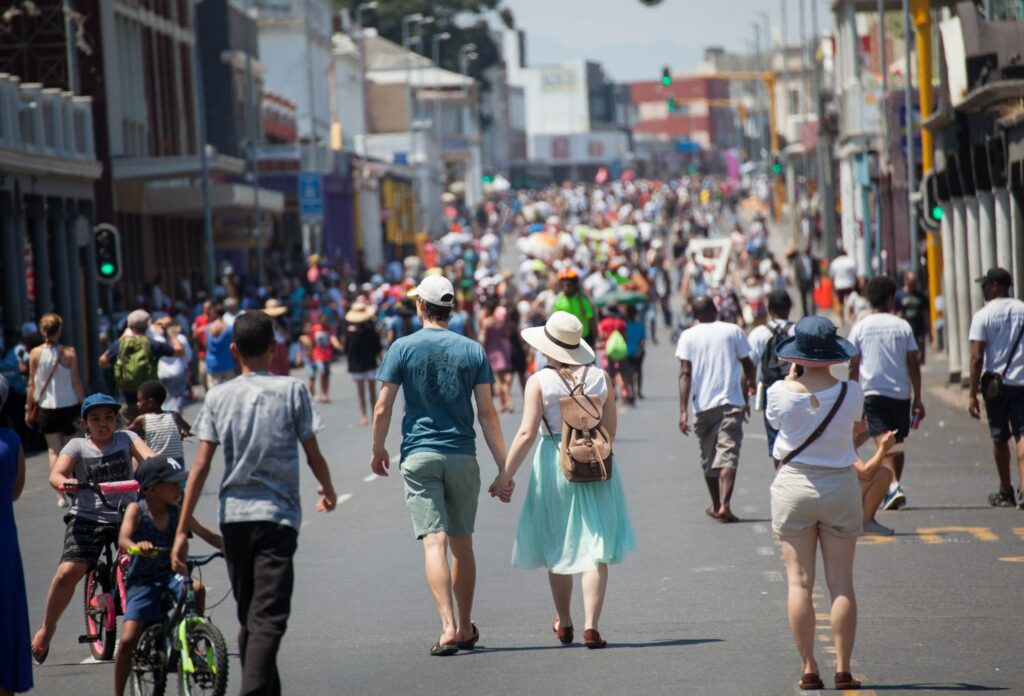
Spotlight: Cape Town, South Africa
In Cape Town, transport accounts for 50% of total energy consumption and 27% of total carbon emissions. It’s not always easy to incentivize a population into greener initiatives, so having the right framing in South Africa was key for our mission to be successful.
To promote active mobility, and to enable social inclusion and vibrant public life on the streets,the TUMI Challenge in Cape Town focused on hosting a series of Open Streets Events in the city. Even though this seems to be a rather minor intervention, Open Streets are proven people-centered tools to improve safety perception of pedestrians, increase attractiveness of public spaces and create a platform for community building, recreation, and active mobility. It’s a small measure, but it has an outsize impact on promoting non-motorized transport and initiating a serious change of attitude toward active mobility.

Share your experiences with others in order to inspire them and give them the opportunity to learn from your project. You never know who might want to join your efforts or is interested in learning what you are doing to implement it in their sector/city/region.

Spotlight: Bogotá, Colombia
The TUMI Challenge in Bogotá, which aimed to increase women’s perceptions of safety in public spaces, not only presented amazing results and a outstandingly successful project implementation, but TUMI’s implementation partner (City of Bogotá, through CAF) also made sure to share best practices with interested stakeholders.
Learn more about “Me Muevo Segura”
The project entailed the use of an app to geo-reference data of the street network of the city, interviews with 14,000 women, and the development of a women’s safety index. The app and the safety index can easily be implemented in other cities as a model, so publishing this success was an important step to enable others to conduct similar measures.

Appreciate small and big accomplishments and take the time to celebrate the progress that has been made. Our brains respond to celebrations and learn to seek them out, so practicing gratitude for your hard work will ensure continuous motivation and commitment. Looking back and appreciating the results will also induce new creativity and ideas for what’s still to come.
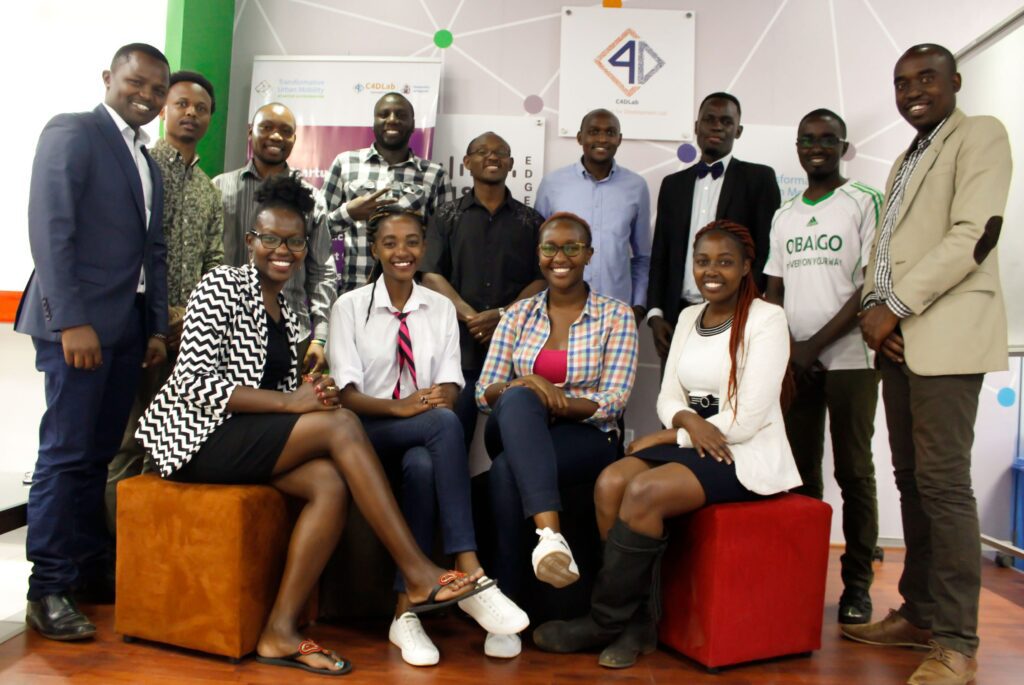
Spotlight: Nairobi, Kenya
The TUMI Accelerator in Nairobi offered mentorship and coaching for eight mobility and digital startups in Kenya. The startups were incubated at the C4DLab at the University of Nairobi during a six-month accelerator program. Throughout the project, several events were hosted to showcase the startups’ successes and to involve new stakeholders.
This successful showcasing peaked the interest of new partners and organizations, which enabled another phase of the accelerator, the African Transformative Mobility Accelerator, which is ongoing from 2020 to 2021 and works in close coordination between TUMI, C4DLab, UN-Habitat, WRI and Shell Foundation.
